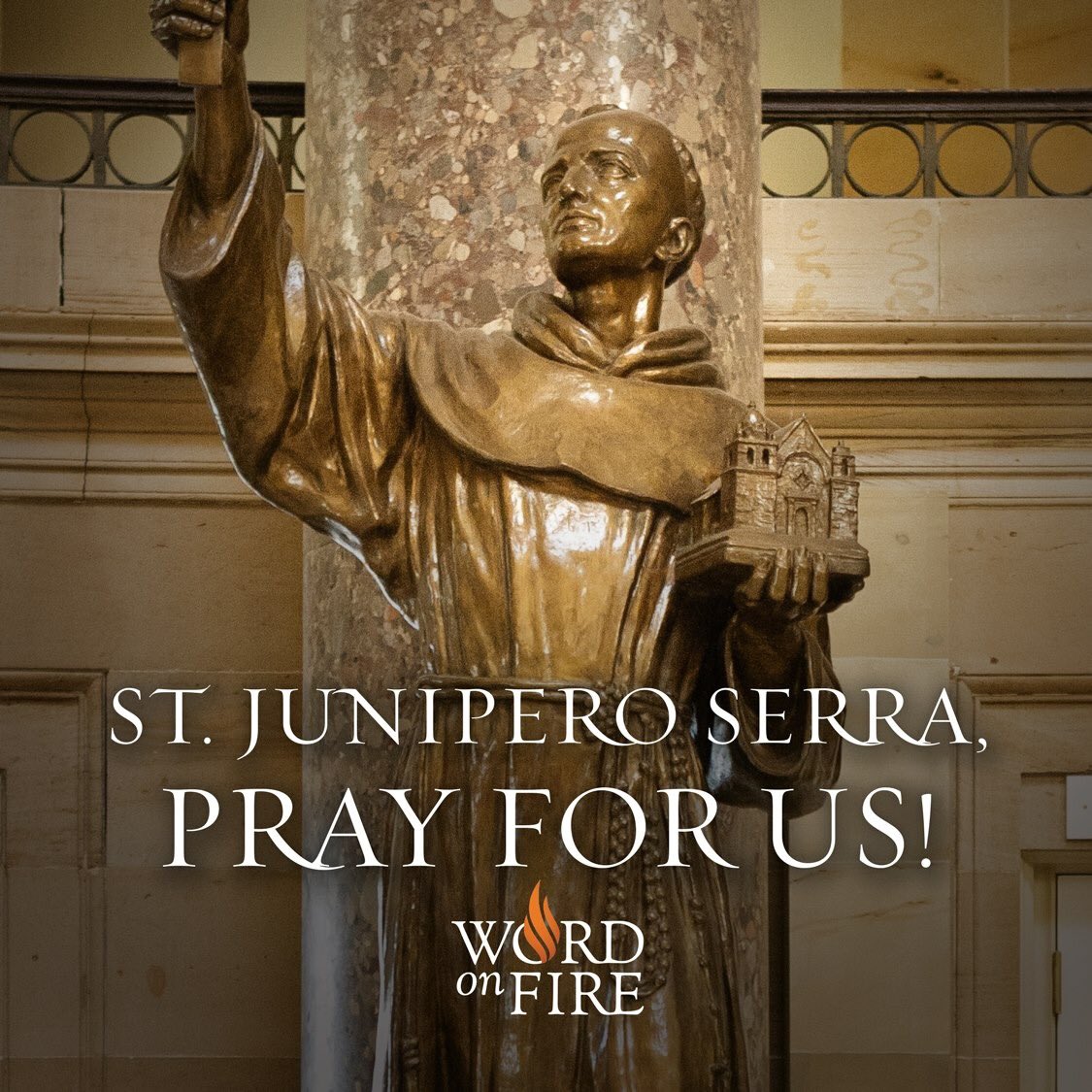1. Friday’s meditation in Magnificat is from St. John Vianney and is a must-read:
if we speak of the adorable sacrament of the Eucharist, we may say that here is the marvel of the love of God for us. Here it is that his power, his grace, and his goodness shine in a manner altogether extraordinary. Here is the bread come down from heaven, the bread of angels, which is given us for the food of our souls; here is the bread of strengthening which comforts and sweetens our sorrows, the traveler’s bread, the key which opens heaven to us. He that receives me, said the Savior, shall have eternal life. And to give us this bread, Jesus multiplies miracles, turns the world of nature upside down, and suspends all its laws.
None can be compared to the Eucharist. By baptism, it is true, we receive the title of God’s children; heaven is opened to us in consequence, and we are made participators in all the treasures of the Church. By penance, the wounds of our soul are healed, and the friendship of God is restored to us. By confirmation, Jesus Christ gives us the Spirit of light and power. By extreme unction, he clothes us with the merits of his Death and Passion. By holy orders, he communicates to the priest all His powers. By matrimony, he sanctifies all our actions, even those in which man seems only to follow natural inclinations. Mercies truly worthy of a God who is in all things infinite!
But all this seems to be only an apprenticeship of his love for people: in the adorable sacrament of the Eucharist he goes further. He gives us himself; we receive here not the application of his Precious Blood, but the author of grace as well.
It is Jesus prolonging his life and his benefits in our midst. O inestimable grace, immense, incomprehensible, divine liberality.
2.
The Eucharist is our nourishment. #homilytweet
— Kathryn Jean Lopez (@kathrynlopez) April 17, 2015
3. Jesus’ Miraculous Means to Enter and Sustain His Risen Life in Us
4.
Want to learn more about the first apostle of the new evangelization?? http://t.co/CgAMSz9HKd #MediaApostle pic.twitter.com/fjWnva5Xd5
— Sister Andrew Marie (@SrAndrewFSP) April 17, 2015
5. Fr. Steve Grunow:
Faith in Jesus Christ is not about exemption from the hard facts of life nor is being a Christian something that is meant to afford us privileges and dispensations. Faith in Jesus Christ is a crucible, in which holiness is perfected by suffering and love is forged in sacrifice. The Church has never advanced in her mission without risk, especially the risk of offending worldly powers.
The Church, like Christ, is destined to be a sign of contradiction to the world. But oftentimes the sign of contradiction that has the deepest impact is not simply in terms of the grandiose political and cultural dramas of history, but in the more immediate circumstances of our lives.
Christ and his Church insist on the qualification, indeed the negation of many of our desires for those things the world values- wealth, pleasure, power and honors. But also that we eschew our need for control over our own lives, our need to be right, to feel safe and secure, to do things the way we want to do things.
We shouldn’t be so distracted by the pomp and pretense of the theaters of the political and the cultural and lose sight that our responsibility for personal conversion to Christ and being fully, actively engaged on behalf of the Church’s mission. Christ changes the world by first changing us.
At the heart of today’s Gospel is the mysterious revelation of the Eucharist. Christ the Lord’s power to multiply food is but a sign meant to direct our attention to the much more miraculous transformation of the food of the Eucharist into his living and divine presence.
Christ the Lord in his mercy seeks to fill the hungry with good things (and commands his disciples to do the same!). But he intends to do more than just fill our stomachs with food. Christ intends to fill our very lives with his eternal and divine life. This is what the Blessed Sacrament is and does. In our adoration and reception of the Blessed Sacrament we are recipients of something greater, indeed more miraculous, than the mysterious multiplication of the loaves and the fish.
6.
#PopeFrancis says for him, too, the first reaction to insult "is not of God."
— Catholic News Svc (@CatholicNewsSvc) April 17, 2015
7.
#PopeFrancis at Mass: When people hurt you, make you angry, give time the time it needs to calm you down, help you react appropriately.
— Catholic News Svc (@CatholicNewsSvc) April 17, 2015
9. What Ever Happened to the Spiritual Works of Mercy?
10.
It is simply impossible to lead, without the aid of prayer, a virtuous life.
… St John Chrysostom
— Fr. Patrick Foley (@FrPatrickFoley) April 17, 2015
















